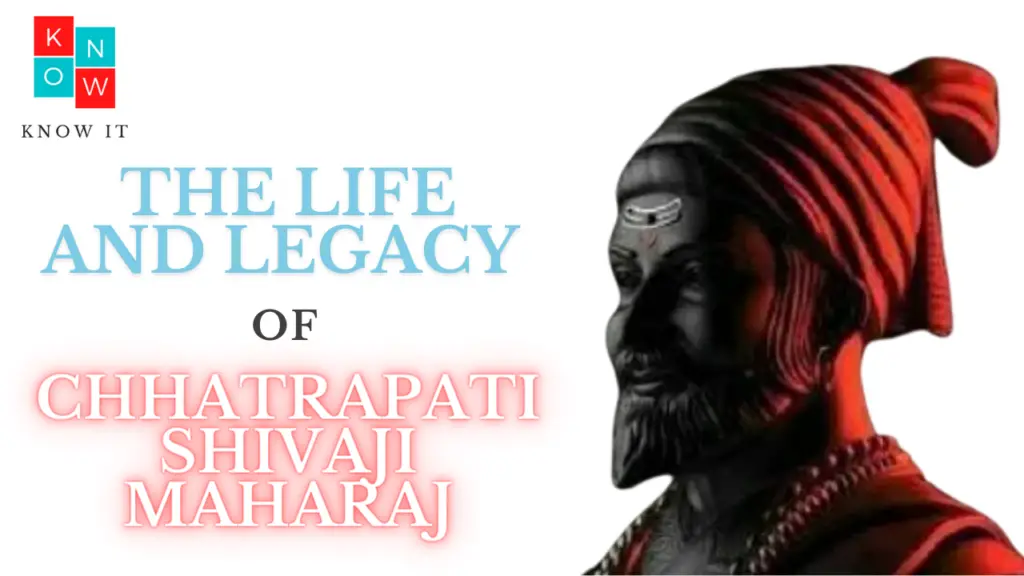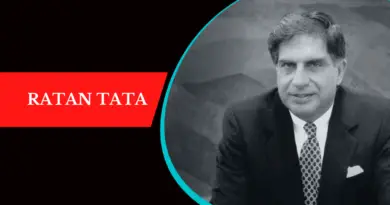The Life and Legacy of Chhatrapati Shivaji Maharaj
Chhatrapati Shivaji Maharaj was the founder of the Maratha Empire in India. He was born in 1630 and died in 1680. He is one of the most iconic figures in Indian history. His legacy has been carried on by his son, Sambhaji Raje Bhosle, and Rajaram Chhatrapati.
The life and legacy of Chhatrapati Shivaji Maharaj continue to inspire people to this day.
Introduction: The Definition of a Warrior King & The Reasons Behind His Successful Reign as a Throne
The King of the Maratha Empire, Chhatrapati Shivaji Maharaj is often regarded as one of India’s greatest heroes. He was a warrior king who fought against the Mughal Empire and established a Hindu empire in Western India.
Shivaji Maharaj was born on February 19th, 1630 in Poona to Shahaji Bhonsle, a Maratha general of the Bijapuri Sultanate and Jijabai. His mother’s name is popularly known as “Chakrawarti Rajni” or “Chakravarti Rajani”.
Shivaji’s father worked hard to make sure that his son had all the necessary skills to lead their empire in future. He also wanted to make sure that Shivaji would not have any vices like drinking or gambling which could affect his leadership abilities in future.

Chhatrapati Shivaji's Achievements as a Strategic Genius
Chhatrapati Shivaji Maharaj was an Indian warrior king and a member of the Bhonsle Maratha clan. He was also known as Shivaji and Chhatrapati Shivaji Maharaj. He is considered to be one of the greatest warriors in Indian history, who fought against the Mughals and Adil Shahi dynasty for control of Hindustan. He had a significant impact on the history of India. He is widely regarded as a national hero in India, especially among Hindus, but also among some Muslims.
Chhatrapati Shivaji Maharaja was an Indian revolutionary who fought for the independence of India. He was one of the prominent revolutionaries in India’s struggle for independence from the British Empire. The legacy of Chhatrapati Shivaji Maharaja is still alive and well today. He is considered to be a symbol of Indian nationalism and patriotism; he is also revered as a great ruler and hero in Maharashtra, where his family ruled for many years, and across India. He was one of the prominent revolutionaries in India’s struggle for independence from the British Empire. His legacy still lives on today, where he is considered to be a symbol of Indian nationalism and patriotism.
Reasons Behind the Rise of the Maratha Empire to Power?
The Maratha Empire was founded in 1674 by Shivaji, a guerrilla warrior. Shivaji successfully liberated the Maratha people from the Mughal Empire and established an independent kingdom.
The Maratha Empire was founded in 1674 by Shivaji, a guerrilla warrior. Shivaji successfully liberated the Maratha people from the Mughal Empire and established an independent kingdom.
Shivaji’s son Sambhaji ruled after him but was eventually captured and executed by Aurangzeb. After Sambhaji’s death, his widow Tarabai took over as regent for her son Rajaram; however, she was defeated by Aurangzeb’s forces in 1707.
Destruction of Adil Shahi dynasty
The Adil Shahi dynasty was an Islamic dynasty that ruled the Sultanate of Bijapur, in India for more than two centuries. It was founded by Yusuf Adil Khan, who originally served as a commander in the army of the Bahmani Sultanate.
In 1627, after the death of Ali Adil Shah I, his son Ibrahim Adil Shah II succeeded him. His rule was challenged by Prince Aurangzeb (son of Mughal Emperor Shah Jahan). Aurangzeb defeated Ibrahim in 1634 and had him put to death.
The end of this dynasty can be traced back to Chhatrapati Shivaji Maharaja’s (founder of Maratha Empire) successful invasion and destruction of Bijapur Fort in 1670.
Chhatrapati Shivaji Maharaj's Leadership Skills
Chhatrapati Shivaji Maharaj was a great leader. He had a very diverse set of skills. He was a great warrior, he was an excellent strategist, he had good diplomatic skills and he also knew how to work with people.
He was also humble and compassionate. He never forgot the sacrifices that his soldiers made for him.
Chhatrapati Shivaji Maharaj's Life as a King and His Many Battles that Led to Hindu-Muslim Unity in India
Shivaji Maharaj’s life as a king began when he was crowned at Raigad Fort on June 19, 1674. He became King of Maharashtra on April 27, 1674, after conquering it from Adilshah. Shivaji Maharaj’s many battles that led to Hindu-Muslim unity in India
Shivaji Maharaj set out on a series of battles to establish Hindu rule in India. He fought against the Mughal Empire and eventually took control of all but one of the forts they held. This newfound power led him to fight more battles and eventually take over Delhi, which had been under Islamic rule. These events helped lead to Hindu-Muslim unity in India.
Conclusion: The Legacy of Chhatrapati Shivaji Maharaj Today- Is He Being Remembered Correctly?
The legacy of Chhatrapati Shivaji Maharaj today is that he was a great warrior and an even greater king. He was a man who fought for his motherland and did not let anything stand in the way of his country’s progress. His legacy lives on in Maharashtra and India as a whole.



